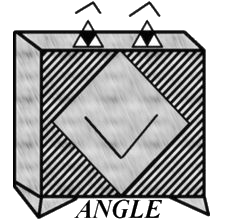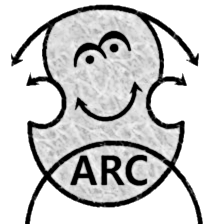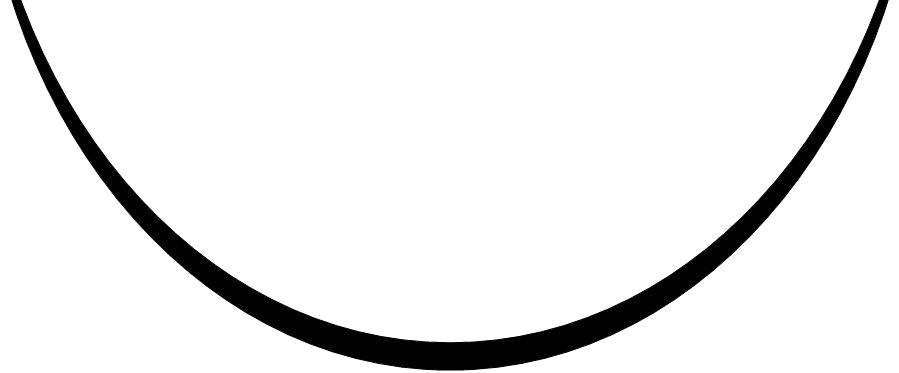Bow-Arm Box Details
Hi, ANGLE!


Hi, ARC! Glad to work with you again!
When the bow is placed on the strings, the Bow is parallel to the upper arm, the area from the Shoulder to the Elbow.
My pleasure!
Shoulder Arc
The primary purpose of the bow-arm’s shoulder is to arc your arm to the correct level of the strings.
The Shoulder Arc is the main lever of the Bow-Arm Box.
IMPORTANT: When bowing, the shoulder never lifts upwards towards your ear.
The only function the shoulder performs when bowing, is to float your bow-arm to the proper height, giving power to your playing.
On the next page, V will be assisting in diagrams. As a team, we will display the proper Shoulder Arc levels that provide leverage.
Each individual string has a corresponding upper arm bow position.
As you know, whenever V is teaching, his presence serves as a reminder to always include leverage in your playing motions. Let’s go!


ARC, please kindly share your Shoulder Arc expert knowledge.
Introducing the Bow Parts of the Bow The Stick Horse-Hair The Tip The Frog The Winding How the Bow Works
Rosin Preparing to Hold the Bow Stick Training Exercises Bowing Terminology Down-Bow Up-Bow
Bow-Hand Set-Up Finger Tasks and Functions The Thumb Meet ARC Finger Segments The Index-Finger
Bow-Hand Pronation The Center-Finger and Ring-Finger Bow-Hand Fulcrum Ring-Finger Propulsion Bass Bows
Pinky Bow-Tasks ‘Casting’ the Bow-Hand Bow-Wrist Tasks Rotational Inertia Arco Clay Smile Exercise Meet ANGLE
The Bow-Arm Box The Shoulder Arc Bow Contact-Point String Lanes Bow-Segment Mastery Bowing Exercises
Finding the Bow Contact-Point “Painting With Sound” Bowing Exercises Menu Bow Taps Bowing Traditions
Perform Down-Bows Perform Up-Bows The Art of the Bow-Change Articulations Staccato Legato
Mastery Checkpoint One Building Bow Control Bow Speed and Bow-Arm Motion Bow Planning and Distribution
Slow Moving Bow Strokes Individual Bow Segments Traveling the Bow Bowing Dynamics Mastery Checkpoint Two
Advanced Techniques Slurs and Articulations Slur Training Locating the Bow’s Balance Point Ricochet and Spiccato
Exploring Ricochet Ricochet Control Spiccato Training Spiccato Control Spiccato Brush Strokes
Multiple String Crossings Virtuosic Bow Strokes Arpeggio Bowing “Flying” Staccato Mastery Checkpoint Three
SCROLL’s List of Bow Strokes
Rosin Preparing to Hold the Bow Stick Training Exercises Bowing Terminology Down-Bow Up-Bow
Bow-Hand Set-Up Finger Tasks and Functions The Thumb Meet ARC Finger Segments The Index-Finger
Bow-Hand Pronation The Center-Finger and Ring-Finger Bow-Hand Fulcrum Ring-Finger Propulsion Bass Bows
Pinky Bow-Tasks ‘Casting’ the Bow-Hand Bow-Wrist Tasks Rotational Inertia Arco Clay Smile Exercise Meet ANGLE
The Bow-Arm Box The Shoulder Arc Bow Contact-Point String Lanes Bow-Segment Mastery Bowing Exercises
Finding the Bow Contact-Point “Painting With Sound” Bowing Exercises Menu Bow Taps Bowing Traditions
Perform Down-Bows Perform Up-Bows The Art of the Bow-Change Articulations Staccato Legato
Mastery Checkpoint One Building Bow Control Bow Speed and Bow-Arm Motion Bow Planning and Distribution
Slow Moving Bow Strokes Individual Bow Segments Traveling the Bow Bowing Dynamics Mastery Checkpoint Two
Advanced Techniques Slurs and Articulations Slur Training Locating the Bow’s Balance Point Ricochet and Spiccato
Exploring Ricochet Ricochet Control Spiccato Training Spiccato Control Spiccato Brush Strokes
Multiple String Crossings Virtuosic Bow Strokes Arpeggio Bowing “Flying” Staccato Mastery Checkpoint Three
SCROLL’s List of Bow Strokes



